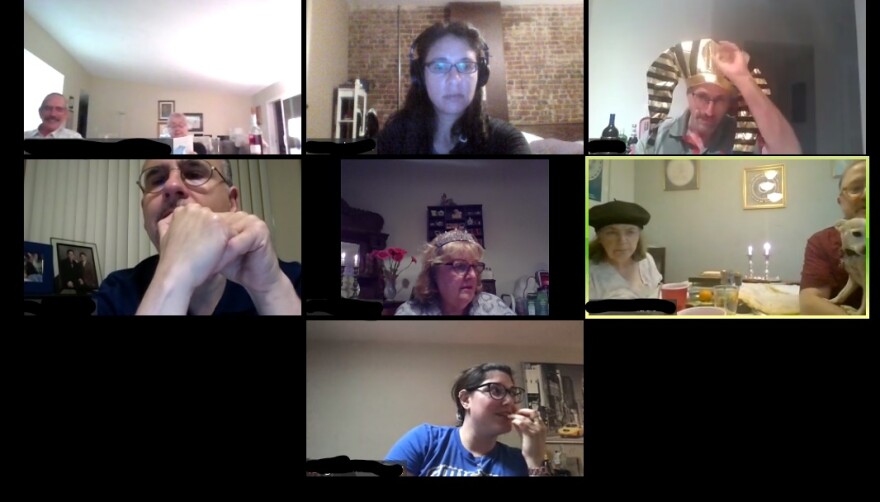It's Thanksgiving, and that means the pandemic holiday season — a holiday season like no other — is officially underway.
State guidelines strongly encourage people to stay at home this year and connect with friends and family virtually. They say attending an in-person celebration with other households amounts to putting yourself, your family and your community at risk.
“Traveling during a pandemic, especially right now, while our disease transmission rates are so high is a pretty high-risk activity,” Rachel Herlihy, Colorado’s state epidemiologist, warned at a recent press conference.
That’s a tough thing to hear ahead of the holiday season. But those in need of some help coming to terms with this year’s scaled-back festivities can take a page from the Jewish community’s experience putting together virtual Passover seders last spring.
“(Passover) is a holiday that, like Thanksgiving, has a gigantic table, along with people who aren't members of your family,” explained Samira Mehta, an assistant professor of Jewish Studies at CU Boulder. “People go home for Passover, the way that they go home for Thanksgiving.”
Last April, just a few weeks into the first stay-at-home orders around the country, Jewish families were canceling flights and migrating their Passover plans to virtual platforms with little advance notice, and a lot of improvisation.
Michael Kadovitz, a longtime Jewish educator in Denver who also works in property management, hosted one of those Zoom Passover seders for family and friends in Colorado and as far away as Los Angeles and Fort Lauderdale.
“It was the first time we ever did anything like that,” he said. “We missed some cues, here and there, so it was a little awkward at first.”
Kadovitz said ubiquitous laptops and the complications of rapidly adopting new technologies made it hard to recreate the familial warmth and festive atmosphere of his typical seders — a concern many families are now facing in planning their virtual Thanksgiving gatherings.
Professional party planners, like Taylor Strope, who owns Mountainside Events in Fort Collins, suggests families continue typical holiday traditions like dressing up and decorating the table to keep the occasion feeling special, even if there are no guests sharing the meal this year.
“Just so it's a little bit different than your average table setting for any other dinner,” she said, “Make it feel like this is a really special dinner and a special moment to spend with your family.”
For his part, Kadovitz says he’s learned a lot since April about making big virtual dinners work out smoothly. For instance, he’s learned how to handle some of the basic technical problems with videoconferencing audio that we all struggle with.
“If you ever do Zoom, there's like a two-second or so delay on everybody's end,” he said. “If you’re trying to sing a song simultaneously, everybody's off — it just doesn't sound (in) unison. It becomes this cacophony of sound.”
He recommends forgoing the group readings and just taking turns in the group. “So we said, okay, you do this one. I'll do that one. And then we'll do this together,” he said. “And then just knowing when to maybe mute yourself because then it doesn't sound so bad.”
He also says that when it comes to screens, it helps to scale up. “Hook up your computer to your big screen, so you can see everybody a little bit better, instead of just a computer on the table,” he said.
Kadovitz has hosted dozens of family meals on Zoom since that first Passover seder, including weekly Friday night Shabbat dinners and other family-oriented Jewish holidays. “We've got some experience under our belt now, on how to do this properly, in a way that's still bringing meaning.”
And speaking of meaning, Kadovitz says the most important thing that pandemic Thanksgiving can learn from pandemic Passover — is that what you get out of the holiday is a choice. It all depends on what you decide to make of the situation. Or, as he puts it, Jewish scholar that he is, “the wealthy person is the one who is satisfied with what he has.”
However you celebrate, and whomever you celebrate with this year, we hope you have a very safe and happy Thanksgiving!
This conversation is part of KUNC’s Colorado Edition for Nov. 24. You can find the full episode here.





